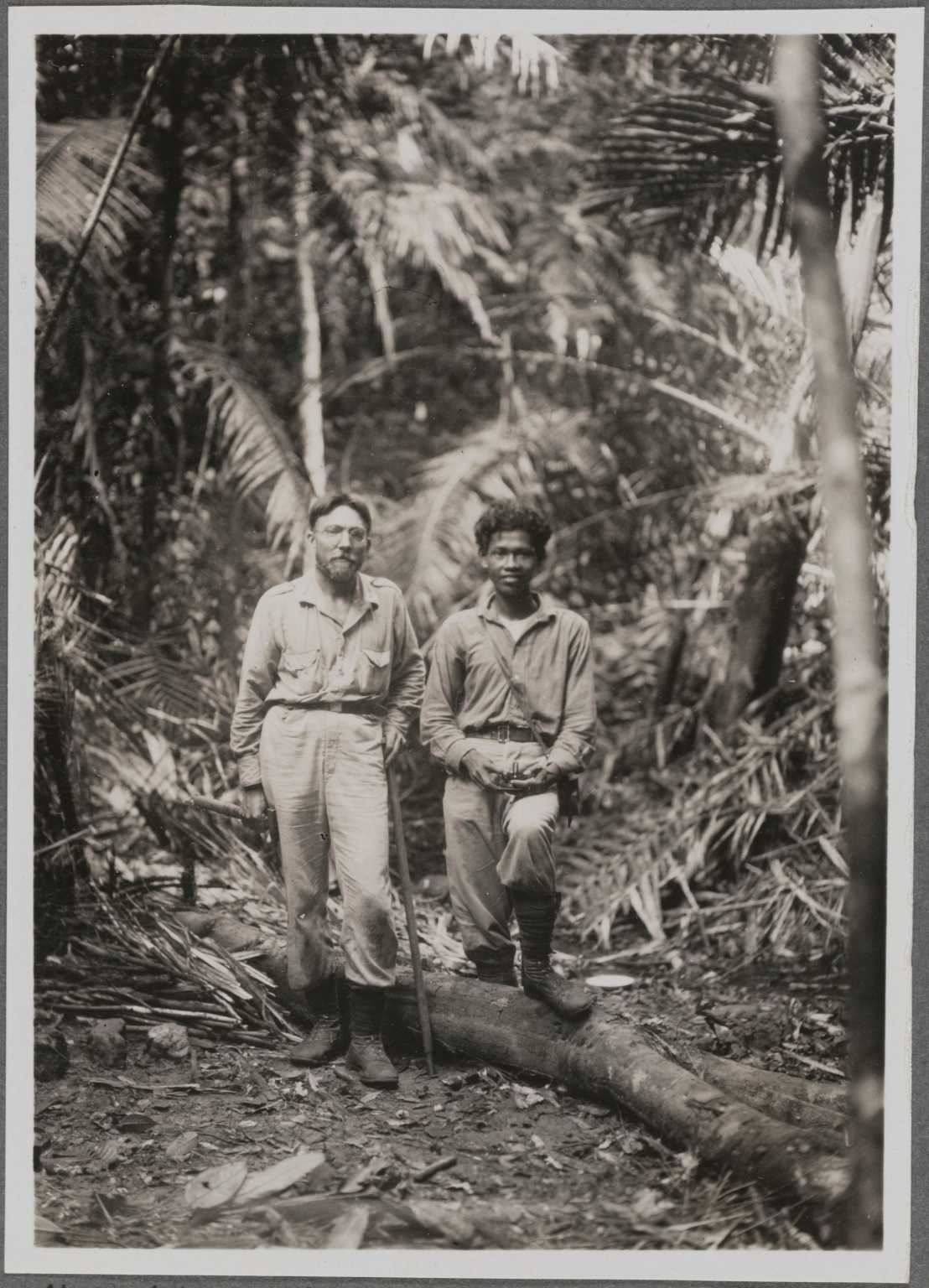Decolonisation

Although Switzerland was never a colonial power, its past and present are intertwined with the colonial era in many ways. Swiss companies were active in the colonial commodities trade, and banks and insurance companies were involved in the transatlantic slave trade. Scientists from Switzerland, many of them from ETH Zurich, also used the infrastructures and asymmetrical power relations of the neighbouring colonial powers to advance their research careers and collect comparative material from all over the world.
This is reflected not least in the monuments on display at ETH Zurich and in its collections and archives. Written and photographic legacies of individual explorers as well as botanical, geological or entomological specimens from colonial contexts bear witness to Swiss participation in colonial knowledge production. The collections and archives aim to contribute to current debates on decolonisation and to develop an active attitude and role in dealing with their colonial holdings.
Ongoing projects
There are over a hundred monuments and busts in and on the buildings of ETH Zurich, which have commemorated people from Switzerland and abroad since the university was founded in 1855. They are recorded in ETH Zurich's Art Inventory. As a first step towards an active and critical examination of this culture of remembrance at ETH Zurich, Dr Monika Gisler and Lina Gisler produced the preliminary study "external page Denkmälder der ETH Zürich" (Monuments at ETH Zurich) at the end of 2022 on behalf of the KUNST AM BAU commission.
The findings are clear: "Around two thirds of the people studied expressed racist, sexist or anti-Semitic views in one form or another, profited from colonialism or contributed to its legitimisation through their writings." (S. 18, translation of the German original). One of the study's recommendations is to contextualise the monuments/busts in question in order to make the interdependencies visible. This will be implemented both analogue and digitally in 2024: on-site signage will provide background information, and the information will also be included in the art inventory database and made available online.
The Decolonisation working group was set up in August 2023 to look more closely at the museum's own practice of cataloguing and presenting colonial collections. It is made up of employees from various collections and archives at ETH Zurich. Among other things, it deals with
- analysing its own holdings and identifying problem areas,
- dealing with problematic terminology with the involvement of various stakeholder groups and
- deriving measures and recommendations.
The Decolonisation working group has summarised its findings in the practical guide ‘external page Decolonising the Collections and Archives of ETH Zurich’ (August 2024).

30. 08.2024 – 13. 07.2025
From 30 August 2024, a temporary exhibition curated by Monique Ligtenberg on the topic of "Colonialism in the ETH collections" will be on display in extract. Complementing the upcoming exhibition "external page colonial. Global Entanglements of Switzerland" at the nearby external page National Museum Zurich, the exhibition at ETH Zurich will focus on the following themes:
- The role of colonial contexts in the history of ETH, its collections, its researchers and in the natural sciences in general
- Current continuities of these historical entanglements
- Overarching: Indigenous knowledge and actors